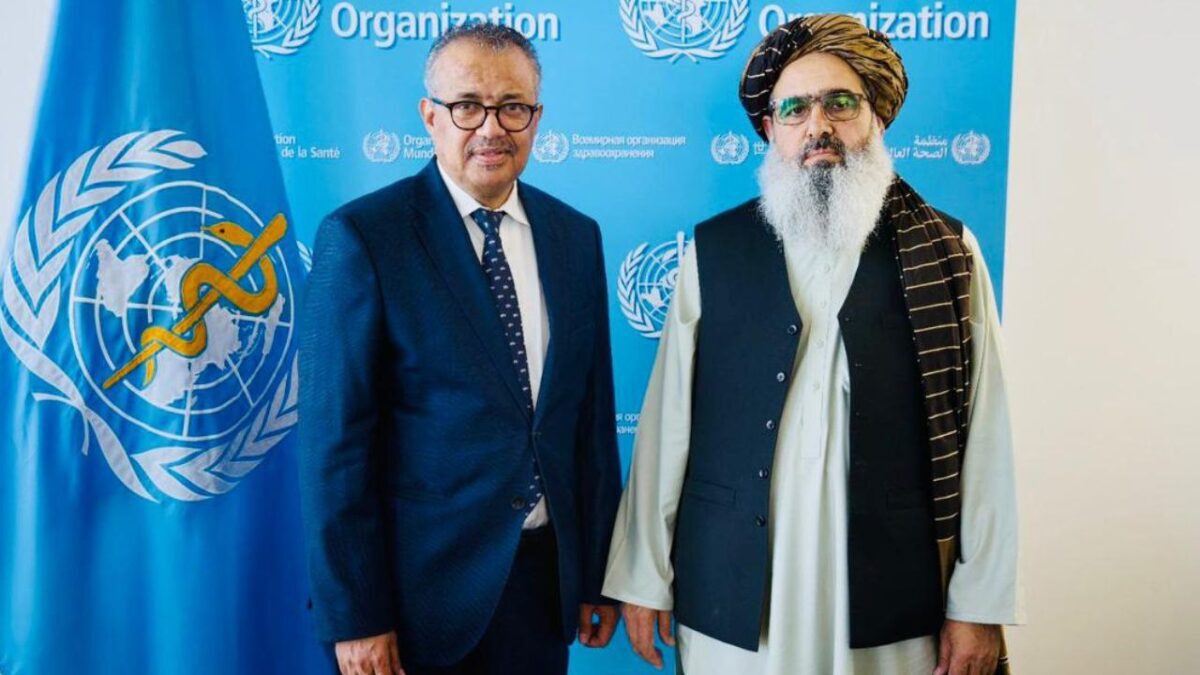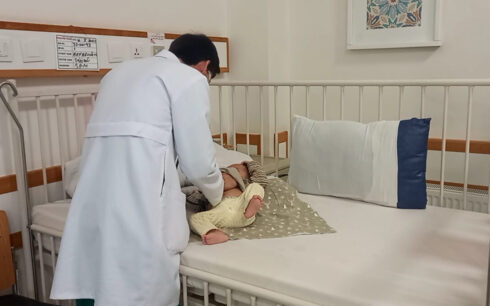A meeting between World Health Organization chief Tedros Adhanom Ghebreyesus and the Taliban’s health minister, Noor Jalal Jalali, in Swiss has sparked widespread criticism, with many calling it a slap in the face to Afghan women who have suffered greatly under Taliban rule.
Critics argue that the meeting undermines the sacrifices of polio vaccinators reportedly killed in Taliban attacks. Ghebreyesus announced the meeting on X on Saturday, stating, “We also discussed the need to ramp up the work to end polio and respond to other outbreaks across the country.” He pledged that the WHO would continue to support all people in Afghanistan, especially women and children.
The Taliban-run Ministry of Public Health also issued a statement on Saturday, noting Jalali’s visit to Switzerland, where he met with Ghebreyesus and attended several health summits.
Jalali, previously the Taliban’s deputy interior minister, was appointed health minister after the removal of Qalandara Ebad. In September 2022, while serving as deputy interior minister, Jalali publicly supported Taliban suicide bombers, stating, “The martyrdom Estishhadi [suicide bombers] are a legacy of our jihad and are our pride.”
The meeting has drawn serious criticism, given the Taliban’s oppressive restrictions on women’s work and education, which have severely impacted the health sector. Former diplomat Asila Wardak accused the Taliban of killing polio vaccinators, noting on X that the meeting should have addressed these killings. “I wish you had asked him why so many innocent vaccinators were killed in Afghanistan?” Wardak said.
Khushal Nabizada, the former head of Kabul’s public health department, made a similar statement, arguing that the Taliban were the main obstacles to the polio vaccination campaign. “Hundreds of polio campaigners and workers were martyred by the Taliban. But now, as polio brings the Taliban representatives to major platforms, both the Taliban and the UN welcome it,” he said.
Mariam Sulaiman Khail, a former member of parliament, termed the meeting a “slap” to the face of millions of Afghan women. “If the WHO wants to support women, it should have sent a female envoy. This picture with the Taliban is a slap in the face of millions of Afghan women,” she stated on X, referring to the restrictions imposed by the Taliban.
The meeting even drew criticism from outside Afghanistan. Former Pakistani parliamentarian Bushra Gohar stated on X: “Tedros Adhanom Ghebreyesus met a Taliban terrorist with the blood of Afghans on his hands to discuss the health situation… Is it a joke? It is more like a meeting to give legitimacy to terrorists’ occupation of Afghanistan. Taliban stakes are in terrorizing & killing Afghans.”
Civil rights activist Seema Noori criticized the UN’s policies, stating, “These policies appear completely dual. On one hand, the UN wants to address the needs of Afghan society, but it is itself a blatant violation of human rights and will have political consequences.”
Amid calls for the international community to prioritize human rights in their engagement with the Taliban, Afghan citizens urge that such engagements should be contingent on the Taliban providing work opportunities for women and men and reopening schools and universities. “The world should recognize the Taliban under conditions of reopening schools, universities, and alleviating poverty,” a Kabul resident said.
The visit of the Taliban’s health minister to Switzerland comes amid repressive restrictions that have deprived millions of girls from accessing education. Human rights activists warn that the Taliban’s policies will lead to a severe long-term shortage of female doctors and healthcare workers in Afghanistan.




